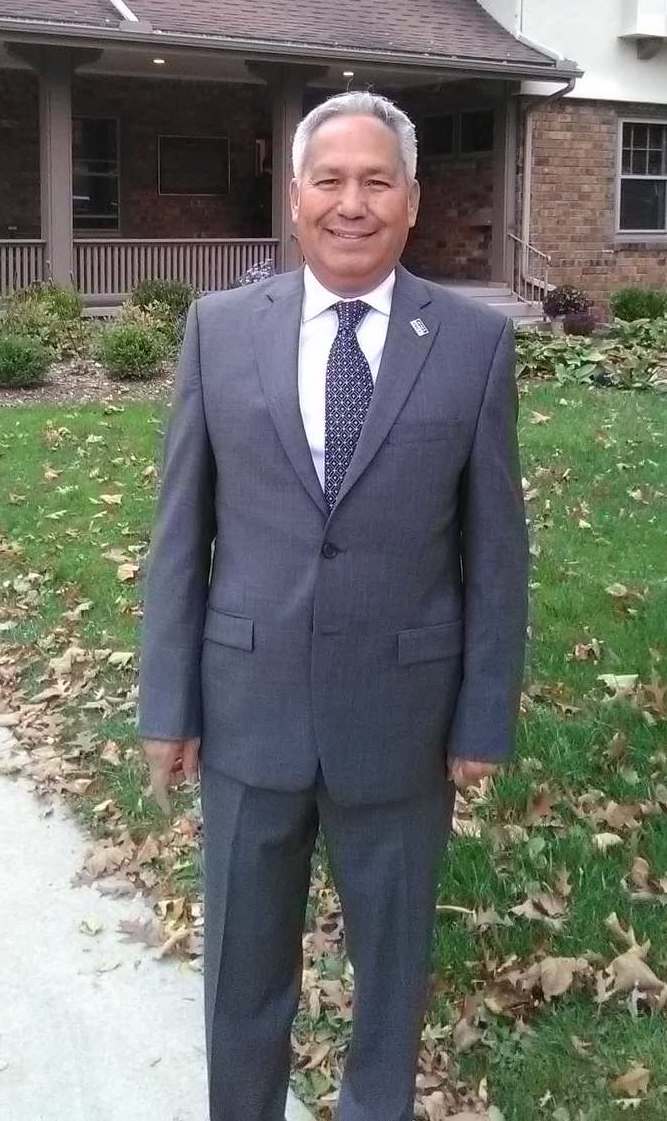A U.S. immigration judge has again denied asylum for a Mexican journalist who fled his country a decade ago out of fear for his life.
Judge Robert Hough denied the requests of Emilio Gutiérrez Soto and his son on Feb. 28, 2019. The journalist’s lawyer has since filed an appeal with the Board of Immigration Appeals (BIA).

Emilio Gutiérrez Soto (Courtesy)
“It was something we already expected. The judge took the legal process as something personal, because he has absolutely dismissed all the arguments we have presented. After 10 and a half years, to this day he recognized that I am a journalist, but not credible, when the Government of the United States recognized my credible fear. It is a great contradiction,” Gutiérrez, who is currently a Knight Wallace Fellow at the University of Michigan, told the Knight Center for Journalism in the Americas.
He and his son left Mexico in 2008 after someone told him the military planned to kill him, apparently due to reporting on alleged abuses against civilians. He requested asylum at the U.S.-Mexico border, but was placed in detention.
In the February 2019 decision, the judge found that Gutiérrez was “not a credible witness” and also that there is not sufficient testimony or evidence to show he was persecuted in Mexico or will be persecuted if he goes back, according to the decision.
The judge said the alleged threats from military members against Gutiérrez were not enough to establish past persecution. Regarding whether he would be persecuted in the future, the judge pointed to the ability to move to another area of Mexico, the lack of evidence that the military knew about Gutiérrez’s current denunciations of it and Mexican laws protecting journalists.
Hough discounted Gutiérrez’s protections based on political opinion or being part of a social group. Therefore, he denied the asylum claim as well as Gutiérrez’s application for withholding of removal and application for protection under the Convention Against Torture (CAT).
When the Knight Center contacted the Executive Office for Immigration Review (EOIR) for an interview with Judge Hough, it was told immigration judges do not give interviews or comment on decisions.
It was the second time that the judge considered the case. He first denied the request in July 2017. However, the BIA ordered a new hearing in May 2018, telling the judge to take into account new evidence.
Between those decisions, Gutiérrez and his son were nearly deported in December 2017. Though an emergency stay stopped their removal, they were in U.S. Immigration and Customs Enforcement (ICE) detention for seven months.
Gutiérrez said the judge does not know what is happening in Mexico, pointing specifically to Hough’s mention of the protection mechanism. Gutiérrez pointed out that one of the journalists killed in the country this year was part of the program.
“In this new government [of Mexico] there is not even a message of encouragement or solidarity with the journalistic guild,” Gutiérrez said. “On the contrary, the new president has expressed himself arbitrarily against media and journalists. Whether we are good or bad, we deserve respect from the first authority of Mexico.”
The journalist said the judge made the wrong decision and is trying to send them back to Mexico to be killed.
Now, Gutiérrez will again wait for the BIA’s decision on his latest appeal.
The appeal argues that Gutiérrez is a “Mexican journalist who exposed government corruption within Mexico, and was threatened with death on numerous occasions by the Mexican military.”
Regarding political opinion, it pointed to Gutiérrez’s denunciations of corruption in the Mexican military, both to the press and in speaking engagements. Regarding past persecution, the appeal states that Gutiérrez “received credible death threats” from the military. It contends that Hough “ignored Mr. Gutiérrez-Soto’s credible testimony, his expert witnesses, Mexico’s country conditions, and the fact that journalists in Mexico continue to be murdered even when they are supposedly under the watch of the Mexican government’s National Protection Mechanism to Protect Journalists.”
The appeal said the judge did not consider updated country conditions, including the number of journalists killed in Mexico.
It also claimed that the judge minimized expert witnesses, and was biased against Gutiérrez.
Lastly, it fought the immigration judge’s finding that Gutiérrez was not credible, pointing to support from various international organizations. It also said requiring corroborating evidence from a former boss and the person who informed the journalist he would be killed was unreasonable since they could be in danger for doing so.
Gutiérrez is nearing the end of his time as a journalism fellow at the University of Michigan.
“It has been a reencounter with my profession, the profession of journalism,” said Gutiérrez, who considers it his passion.
He said there has been a nice response from the university community concerning his case.
“In the United States there are very, very supportive people, people who hate wars, people who hate dishonesty, and it is something that in my case, I am grateful that they would have given us that opportunity to be able to talk with all of them and offer what exists in our case,” Gutiérrez said.